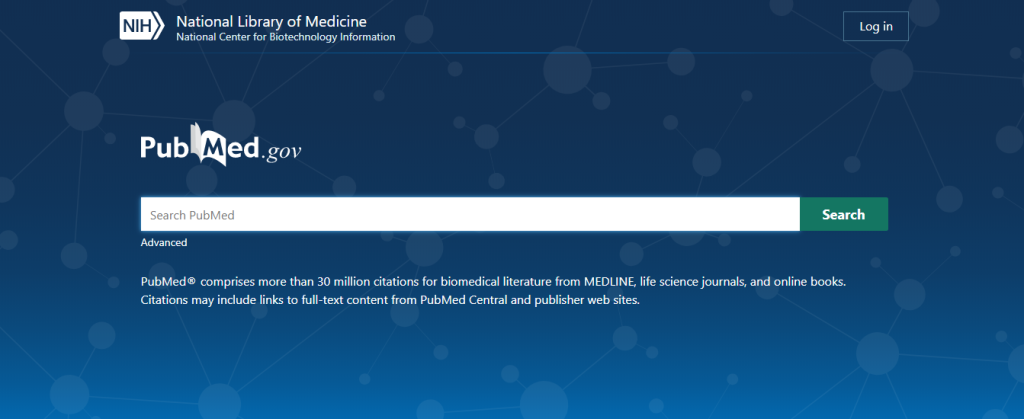Precision Searching
Library Databases
A specialized database—often called a research, library, or subject database—allows targeted searching on one or more specific subject areas (i.e., engineering, medicine, Latin American history, etc.), for a specific format (i.e., books, articles, conference proceedings, video, images), or for a specific date range during which the information was published. Most of the information these databases contain can not be found by Google or Bing.
Database Scope
Information about specific subject coverage, formats, or date ranges in a database is called its scope. A database may be narrow or broad in scope, depending on whether it, for instance, contains materials on one or many subject areas.
Most libraries have lists of the databases available and brief descriptions are visible along with the database title and/or by selecting the “I” link for information.
There are several types of databases, including:
- Bibliographic – details about published works
- Full-text – details plus the complete text of the items
- Multimedia – various types of media, such as images, audio clips, or video excerpts
- Directory – brief, factual information
- Numeric – data sources
- Product – model numbers, descriptions, etc.
- Mixed – a combination of other types, such as multimedia and full-text
When to Use Databases
You may search a variety of databases to uncover scholarly information about a specific subject area, for instance, CINAHL covers nursing and allied health. You can also use these databases for information not available through a comprehensive database (covers all topics/subjects – ex. Academic Search Complete).
In addition to the library’s subscription (paid) databases, there may be free databases available where you can find additional resources such as PubMed, the major database for the health sciences (also available by subscription as Medline).
Tip: Free vs. Subscription?
In some cases, the data available in free and subscription versions are the same, but the subscription version provides some sort of added details or enhancements for searching or viewing items.
This example shows the scope page for PubMed, a freely available health sciences database
Once you are aware of a database’s scope, you’ll be able to decide whether the database is likely to have what you want (for instance, journal articles as opposed to conference proceedings). Reading about the scope can save you time from searching databases that do not contain what you need.
How to Use Them
Searching databases varies depending on the interface being used. Most libraries will have a list of databases available on their web page.
Example: PubMed
PubMed is a freely available health sciences database that contains scholarly and research journal articles, and a limited quantity of online books. While this database is free and available to the public, the articles contained within may not be available at all libraries. Unless your library links to PubMed you will need to check a journal list in your library to see if they subscribe to the journal you’re interested in.
Video: PubMed: Find articles on a topic
Keyword Searching
Although keyword search principles apply (as described in Precision Searching), you may want to use fewer search terms since the optimal number of terms is related to database size. Each scholarly database indexes a fraction of that number, so you are less likely to be overwhelmed by results even with one or two keywords.
Subject Heading Searching
One precision searching technique that is especially helpful in subject databases is subject heading searching. Subject heading searching can be much more precise than keyword searching because you are sure to retrieve only your intended concept.
Subject searching is helpful in situations such as:
-
- There are multiple terms for the same topic you’re interested in (example: cats and felines).
- There are multiple meanings for the same word (example: cookie the food and cookie the computer term).
- There are terms used by professionals and terms used by the general public, including slang or shortened terms (example: flu and influenza).
Here’s how it works:
Database creators work with a defined list of subject headings, which is sometimes called a controlled vocabulary. That means the creators have defined which subject terms are acceptable and assigned only those words to the items it contains. The resulting list of terms is often referred to as a thesaurus. When done thoroughly, a thesaurus will not only list acceptable subject headings but will also indicate related terms, broader terms, and narrower terms for a concept.
Tip: Finding Useful Subject Headings
Try this strategy to find useful subject headings. Remember it by thinking of the letters KISS:
- Keyword-search your topic.
- Identify a relevant item from the results.
- Select subject terms relevant to your topic from that item’s subject heading.
- Search using these subject terms. Some resources will allow you to simply click on those subject terms to perform a search. Others may require you to copy/paste a subject term[s] into a search box and choose a subject field.
Check Your Knowledge: Specialized Databases
The content focus of a database (ex. History, Biology, Psychology), date range of resources, and format of resources

